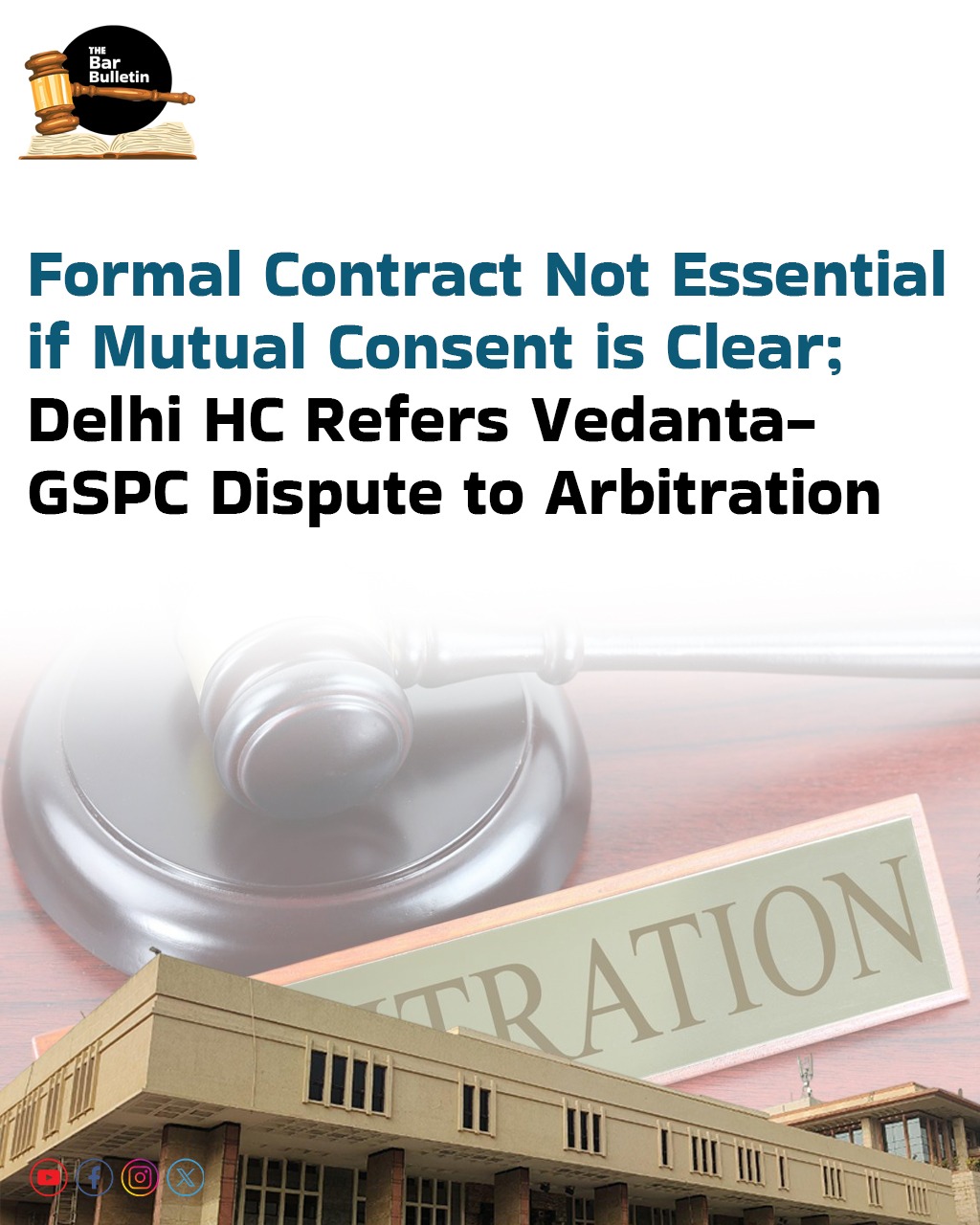The Delhi High Court has allowed Vedanta Limited’s petition under Section 11(6) of the Arbitration and Conciliation Act, 1996, seeking appointment of an arbitrator to adjudicate its dispute with Gujarat State Petroleum Corporation Ltd. (GSPC) concerning a gas supply contract.
Justice Subramonium Prasad held that despite the absence of a formally signed Gas Sales Agreement (GSA), the conduct of the parties especially GSPC’s participation in the bidding process, submission of signed forms, and acceptance of allocation indicated a prima facie arbitration agreement as per Section 7 of the Act. The Court rejected GSPC’s argument that the arbitration clause in the GSA was inapplicable due to lack of final execution.
The dispute stems from an e-auction for natural gas supply from Barmer, Rajasthan, wherein GSPC emerged as the highest bidder, securing over 1.9 million scm/day. Although the bid was accepted and GSPC was allotted the quantity, it later refused to sign the GSA, citing adverse changes in market conditions.
Vedanta, maintaining that the contract stood concluded upon bid acceptance and GSPC’s binding submissions under the RFP, invoked arbitration and appointed Justice L. N. Rao (Retd., Supreme Court) as its nominee. The Court, affirming Vedanta’s position, appointed Justice Ravindra Bhat (Retd., Supreme Court) as GSPC’s nominee arbitrator and directed both to proceed with appointment of the presiding arbitrator.
The judgment affirms that non-signature of a formal contract does not invalidate an arbitration clause if mutual consent is evident from actions and written communications.
The Delhi High Court, while referring the Vedanta–GSPC dispute to arbitration, relied on the Supreme Court’s decision in Cox and Kings v. SAP India (P) Ltd., (2024) 4 SCC 1, to reiterate that the requirement of a written arbitration agreement under Section 7 of the Arbitration and Conciliation Act is primarily to establish a clear record of mutual consent between the parties to resolve disputes through arbitration rather than through courts.
The Court emphasized that what matters is not the formal signature of a contract, but the parties’ unequivocal intention and mutual consent to arbitrate, as demonstrated through their conduct, communication, and documentary exchanges. If such mutual consent is evident, the Court held, an arbitration agreement can be inferred, and the absence of a signed contract does not negate the enforceability of the arbitration clause.
Appearances:
Petitioner: Mr Jayant Mehta, Sr. Advocate with Mr. Sulabh Rewari, Ms. Vasudha Sharma, Ms. Tina Aneja and Mr. Shubhansh Thakur, Advs.
Respondent: Mr. Ramji Srinivasan, Sr. Advocate with Mr. Piyush Joshi, Ms. Sumiti Yadava, Ms. Meghna Sengupta, Ms. Vatsla Bhatia and Mr. Yagya Sharma, Advs.



